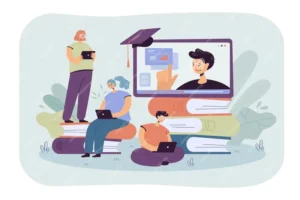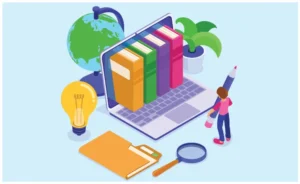Elevating Online Assessment and Grading Methods: Innovative Strategies in Education

Online education has experienced significant growth, and with it, the need for effective online assessment and grading methods has become paramount. Traditional paper-and-pencil tests are often insufficient in the digital realm, leading educators to explore innovative strategies. In this article, we will delve into the strategies and approaches being employed to enhance online assessment and grading methods, ensuring fair, accurate, and insightful evaluations of student performance.
Contents
The Evolution of Online Assessment:
- Formative vs. Summative Assessment: Educators are shifting towards a balanced use of formative and summative assessment. Formative assessments, which provide ongoing feedback to students, help them identify areas of improvement, while summative assessments evaluate overall performance. This blend fosters a more holistic understanding of student progress.
- Authentic Assessments: Authentic assessments mirror real-world tasks and challenges, allowing students to apply knowledge and skills in practical scenarios. These assessments often take the form of projects, case studies, or presentations, promoting deeper learning.
- Competency-Based Assessment: Many institutions are adopting competency-based assessment, which evaluates students based on their mastery of specific skills or knowledge areas. This approach allows students to progress at their own pace, focusing on areas where they need improvement.
Innovative Strategies in Online Assessment:
- Technology-Enhanced Items: Technology has enabled the creation of interactive and technology-enhanced items, such as drag-and-drop questions, simulations, and multimedia presentations. These items assess a broader range of skills and are more engaging for students.
- Peer Assessment: Peer assessment involves students evaluating the work of their peers based on predefined criteria. This approach not only lightens the grading load for instructors but also encourages peer learning and self-assessment skills.
- Self-Assessment: Encouraging students to self-assess their work against specific criteria promotes metacognition and self-regulation. Self-assessment can be a valuable component of the grading process.
- Automated Grading: For objective assessments like multiple-choice questions, automated grading through learning management systems (LMS) is efficient and consistent. It frees up instructors’ time for more in-depth assessments.
- Rubrics and Criteria: Clearly defined rubrics and assessment criteria make expectations transparent for students. Rubrics provide detailed feedback and ensure consistency in grading.
Addressing Challenges in Online Assessment:
- Academic Integrity: The online environment poses challenges related to cheating and plagiarism. Educators are implementing strategies like proctoring software, plagiarism detection tools, and open-book assessments to mitigate these issues.
- Engagement and Motivation: Keeping students engaged in online assessments can be challenging. To address this, instructors are designing assessments that align with students’ interests and offer choice and flexibility.
- Feedback and Communication: Effective feedback is crucial for student improvement. Educators are using audio and video feedback, discussion forums, and one-on-one virtual meetings to provide personalized guidance.
- Accessibility: Ensuring that assessments are accessible to all students, including those with disabilities, is a priority. This involves creating alternative formats, providing assistive technology, and adhering to accessibility standards.
Incorporating Technology and Data:
- Learning Analytics: Learning analytics tools track students’ progress and engagement patterns. Instructors use this data to identify struggling students and tailor interventions to their needs.
- Machine Learning and AI: Artificial intelligence is being employed to analyze and evaluate student responses in real-time, providing instant feedback and adaptive assessments.
- Online Proctoring: Proctoring technology, including remote and AI-driven proctoring, helps maintain the integrity of online exams.
Conclusion:
Enhancing online assessment and grading methods is an ongoing endeavor in the realm of online education. By embracing innovative strategies, leveraging technology, and addressing challenges, educators are not only ensuring the integrity of assessments but also promoting meaningful learning experiences for their students. As the field of online education continues to evolve, so too will the methods used to assess and grade students, ultimately leading to more robust and equitable educational practices.









